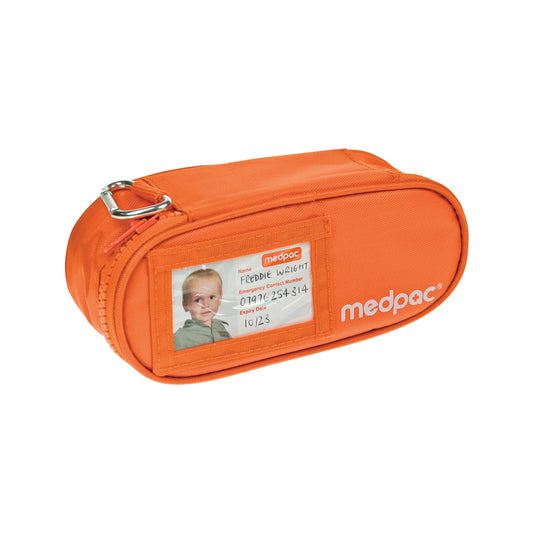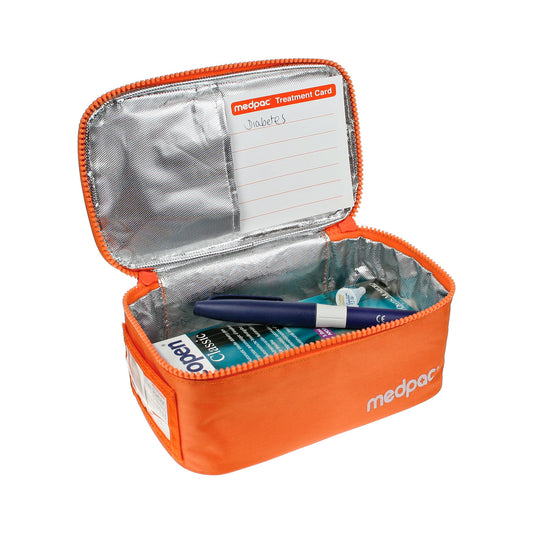As summer draws to a close, it's time to start preparing for the new school year. This often includes purchasing new uniforms, shoes, stationery, and of course, a new pencil case.
However, for parents of children with medical conditions such as asthma, allergies, epilepsy, or diabetes, additional planning is required to ensure their child's safety and well-being at school.
So what are our essential tips?
Medication Storage and Accessibility
One major concern for parents is how their child's medication will be stored and accessed in an emergency situation. This can cause significant anxiety for both parents and children.
To address this need, I designed Medpac—a practical solution for medicine storage that meets the following criteria:
- Affordable: Budget-friendly for families.
- Durable: Built to withstand daily use.
- Easy to Find: Clearly identifiable in an emergency.
- Personalised: Each Medpac includes a photo ID card to ensure the correct medication is identified for the correct child.
Purchasing a Medpac is a great first step in getting organized for the new school year.
Individual Healthcare Plans (IHP)
Ensure your child’s school has an Individual Healthcare Plan (IHP) in place. An IHP is essential for pupils with medical conditions such as asthma, epilepsy, diabetes, and allergies. This plan outlines the specific needs of the child, the required medication, and emergency procedures.
Medication Review
Regularly review and update the following:
- Medical Information: Keep the school informed about your child’s medical condition.
- Medication: Ensure all medications are within their expiry dates and replace them as necessary.
Resources for Support
There are numerous resources available to help parents and children manage the transition back to school, whether they are starting school for the first time or returning with a newly diagnosed medical condition. These resources provide valuable information and support to ensure a smooth and safe school experience.
https://www.anaphylaxis.org.uk/living-with-serious-allergies/serious-allergy-guidance-for-parents///
https://www.asthmaandlung.org.uk/conditions/asthma/child/life/school
https://epilepsysociety.org.uk/living-epilepsy/young-people/school-college-or-university
https://www.diabetes.org.uk/guide-to-diabetes/your-child-and-diabetes/schools






